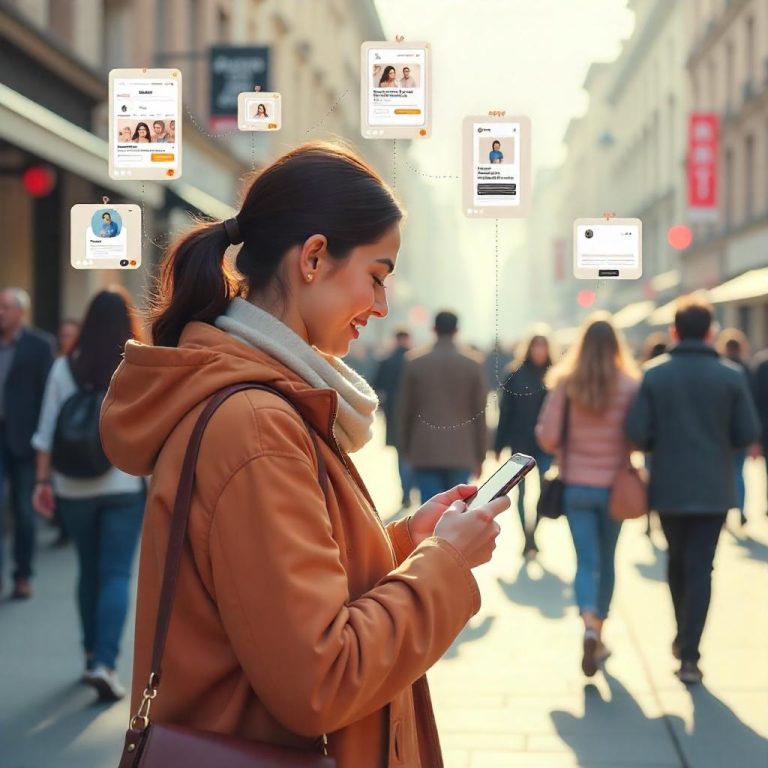The Future Of Digital Marketing
As technology continues to evolve at a rapid pace, digital marketing is transforming in ways that demand businesses to adapt to new strategies, tools, and customer expectations. From artificial intelligence and data-driven insights to augmented reality and enhanced personalization, the future of digital marketing will revolve around creating experiences that are more immersive, customized, and responsive to users’ needs. Here’s a look at some of the key trends and emerging technologies shaping the future of digital marketing.
Unlock the Secrets to Starting a Successful Career in Digital Marketing!
1. Artificial Intelligence (AI) in Marketing
AI is revolutionizing digital marketing by automating processes, predicting user behavior, and enhancing personalization. Advanced algorithms can analyze massive data sets to optimize ad targeting, create predictive content, and improve customer service with chatbots and virtual assistants. Here’s how AI will continue shaping the future:
- Personalized User Experiences: AI will allow marketers to create highly customized experiences based on user behavior, preferences, and past interactions.
- Predictive Analytics: AI-powered predictive analytics can help marketers forecast trends, understand customer lifetime value, and make data-driven decisions.
- Automated Customer Interactions: Chatbots and AI assistants will increasingly handle customer inquiries, provide product recommendations, and streamline the purchase process.
2. Voice Search Optimization
With the rise of smart speakers and voice-activated devices like Alexa, Google Home, and Siri, voice search is becoming a standard way for users to find information. This shift toward conversational search means that marketers need to adapt by optimizing content for voice queries.
- Natural Language SEO: Voice searches tend to be more conversational and question-based, so marketers should focus on long-tail keywords and natural language phrases.
- Structured Data and Schema Markup: Properly structured data will help search engines understand the context of content, increasing the likelihood of being featured in voice search results.
- Local Optimization: Many voice searches are local, making it crucial for businesses to optimize their local SEO, including Google My Business listings and location-based keywords.
3. Augmented Reality (AR) and Virtual Reality (VR)
AR and VR are transforming the way users interact with brands by offering immersive experiences that bridge the gap between online and physical environments. These technologies can help consumers “try before they buy,” enhancing user engagement and providing a unique value proposition.
Unlock the Secrets to Going Viral on Social Media and Making Money in Just 12 Days!
- Virtual Try-Ons: AR enables users to try products virtually, such as clothing, makeup, or furniture, before making a purchase.
- Enhanced Brand Storytelling: VR experiences allow brands to create captivating stories that transport users to different worlds or give them immersive insights into products.
- Interactive Advertising: AR-based ads can encourage users to engage with the brand by playing games, exploring 3D models, or testing out virtual environments.
4. Hyper-Personalization
Personalization has been a key factor in digital marketing success, but with advancements in data collection and AI, hyper-personalization is set to take over. By leveraging real-time data, brands can deliver highly targeted messages tailored to each user’s individual preferences, behavior, and history.
- Dynamic Content: Hyper-personalization allows brands to show different content based on the user’s location, time of day, past purchases, and browsing history.
- Behavioral Segmentation: By analyzing user behavior patterns, marketers can create audience segments that respond to specific interests, ensuring more relevant interactions.
- Real-Time Marketing: With predictive analytics, brands can react to user behavior in real time, providing offers or recommendations that match their immediate needs or preferences.
5. Video and Livestream Marketing
The demand for video content continues to grow, with users engaging more with videos than any other content type. Livestreaming, in particular, is becoming a powerful tool for brands to engage with audiences in real-time, providing authentic and interactive experiences.
Learn How To Earn Money With Affiliate Marketing
- Interactive Videos: Shoppable videos, interactive ads, and live Q&A sessions allow users to engage more deeply with the brand.
- Live Commerce: Livestream shopping events combine entertainment and retail, where brands can showcase products, answer questions, and offer exclusive discounts in real time.
- Short-Form Video Content: Platforms like TikTok, Instagram Reels, and YouTube Shorts have popularized short, engaging videos that can quickly capture user attention.
6. Privacy-First Marketing
As consumers become more aware of data privacy and regulations like GDPR and CCPA tighten control over user data, brands need to adopt a privacy-first approach to digital marketing. Transparency, user consent, and data security will be fundamental in building trust with consumers.
- First-Party Data: Relying on first-party data (information collected directly from users) rather than third-party data will become essential for targeted advertising.
- Consent-Based Marketing: Brands will increasingly need to obtain explicit consent from users before collecting or processing their data.
- Privacy-Centric Technology: Solutions like server-side tracking, data anonymization, and secure customer data platforms will help marketers comply with privacy laws while still gathering valuable insights.
7. Influencer Marketing Evolution
Influencer marketing is evolving from a mere brand endorsement to more authentic partnerships. Consumers today are more likely to trust influencers who have genuine, meaningful connections with the brands they promote.
- Micro and Nano Influencers: Smaller influencers with highly engaged followers can drive conversions due to their niche influence and trustworthiness.
- Long-Term Partnerships: Instead of one-off campaigns, brands are focusing on building long-term relationships with influencers who resonate with their values and audience.
- Performance-Based Models: Influencer marketing is moving toward models where compensation is based on measurable results, such as sales or clicks, rather than just reach.
8. Emphasis on Sustainability and Social Responsibility
Consumers are becoming increasingly aware of environmental and social issues, which influences their purchasing decisions. Brands that showcase their commitment to sustainability and corporate social responsibility (CSR) will have a competitive edge.
Learn How To Boost Your Sales Online
- Eco-Friendly Marketing Campaigns: Highlighting sustainable practices, such as using eco-friendly packaging or supporting environmental causes, can attract conscious consumers.
- Purpose-Driven Messaging: Brands that communicate their mission and values authentically tend to foster deeper connections with their audiences.
- Transparent Practices: Being open about sourcing, manufacturing, and social impact resonates well with today’s consumers, who value honesty and integrity.
9. Omnichannel and Integrated Marketing
An integrated, omnichannel approach allows brands to deliver a seamless experience across multiple touchpoints, such as social media, email, websites, and physical stores. This holistic strategy enhances customer satisfaction and retention.
- Consistent Branding: Creating a unified brand experience across all channels helps reinforce brand identity and recognition.
- Cross-Channel Integration: Coordinating messages, promotions, and interactions across various platforms provides a coherent user experience, whether online or offline.
- Customer Journey Mapping: Understanding and addressing customer pain points at each stage of the journey enables marketers to create a seamless flow between channels.
10. Data-Driven Decision Making
As access to data and analytics continues to grow, data-driven decision-making will be central to the success of digital marketing strategies. Marketers who leverage insights from data can better understand customer behavior, measure campaign effectiveness, and identify areas for improvement.
- Advanced Analytics and BI Tools: Business intelligence tools can provide deeper insights into marketing performance, helping brands optimize campaigns and improve ROI.
- Predictive Modeling: By predicting trends, sales patterns, and customer behavior, brands can make proactive decisions to stay ahead of the competition.
- Performance Tracking and Optimization: Data-driven marketing emphasizes continuous tracking and fine-tuning of campaigns to maximize efficiency and effectiveness.







